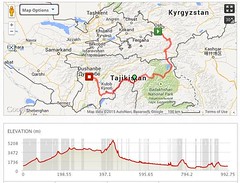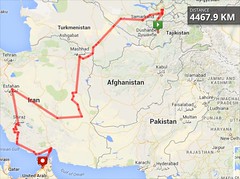Last year I took 3.5 month trip through central Asia and Iran. This section on the Pamirs (a shortcut through the Bartang valley) was a highlight. It's also what convinced me that I needed to ditch the panniers and get over some big tires. So, an appropriate first contribution to the forum.

Leaving Kyrgyzstan, its a long straight road from Sary Tash to a curtain of mountains. The highway has a bunch of passes over 4,000 meters. We met a German cyclists who had just come down off the mountain, staring at some plants. It's so green, she said. It wasn't very green.
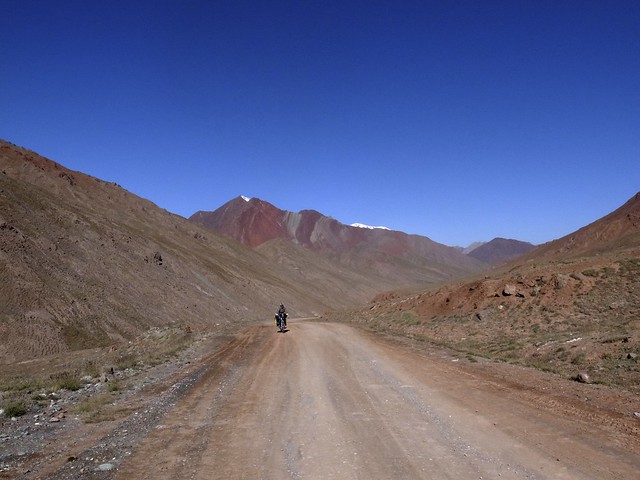
Cycling up the first pass to the Tajik border.
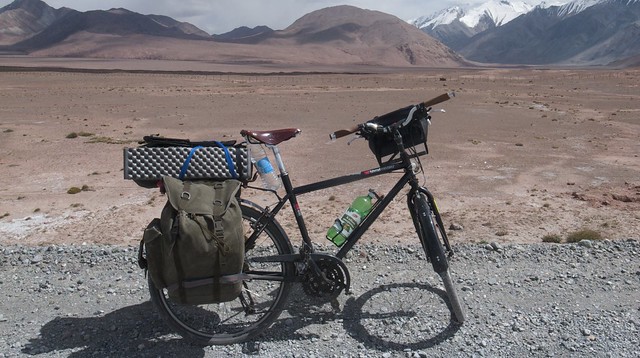
My bike. I sold it at the end of the trip to a young German who cycled it from Iran back to Bavaria. Cost my £550 a few years ago. I miss it, but I was pleased that my home-made panniers made it all the way back. Kept my Brooks though.
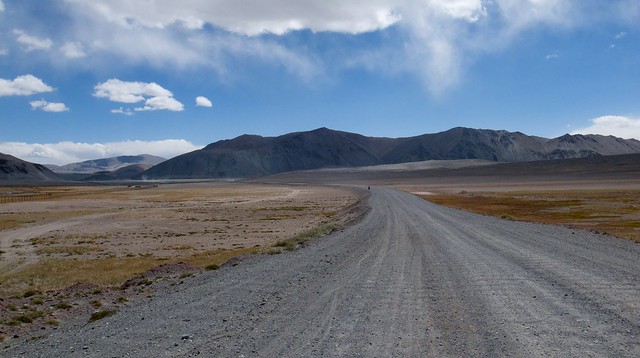
The high altitude plateau south of the Tajik/Kyrgy border is weird. There's nothing and nobody there, just huge broad spaces between the peaks. The air was freezing, but the sun was hot and strong. The altitude brought on sudden bouts of breathlessness, which oddly is worse when your resting. Heavy breathing feels normal when your pushing hard, but when your resting it feels like panic. The wind was howling from the south so we were shoved along this washboard road to Karakul.
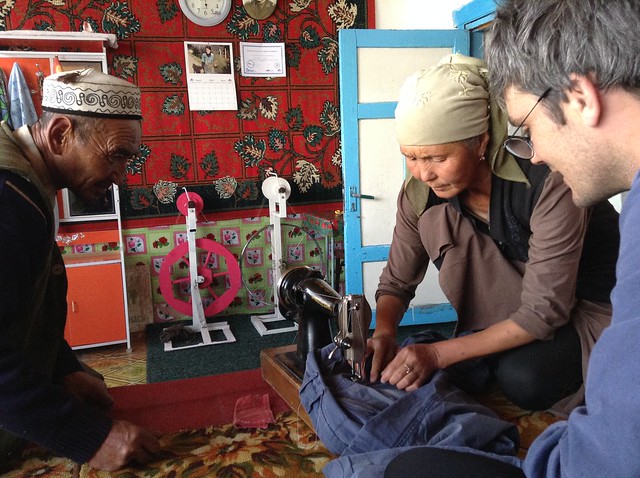
A fall a few days before ruptured my only pair of trousers. This lady in the homestead fixed me up, but not before half of Kyrgyzstan saw my underpants. The Kyrgyz are horse and yak herders. Anthropologists argue that people from cultures who herd animals are generally more badass than people who grow crops: they have a very steal-able resource so it pays to be fearless and formidable. She, like everyone else here, was a Asiatic John Wayne.
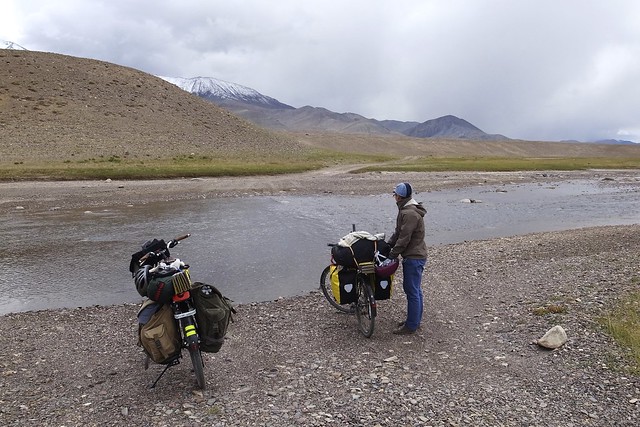
Leaving Karakul, we sung east off of the official Pamir Highway on a detour towards the Bartang valley. No more pavement for a week or two. No more villages for a while either. A river crossing or two amplify the isolation.
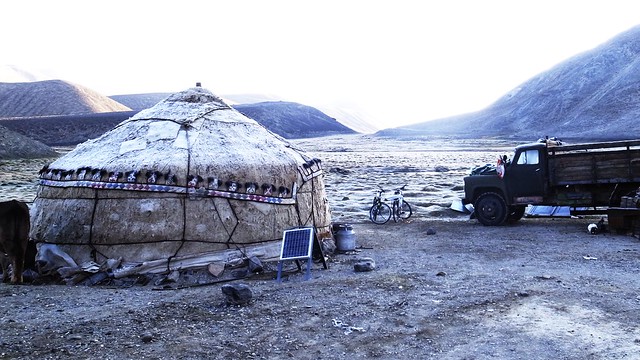
That night we slept in yurt. Yurts are great.
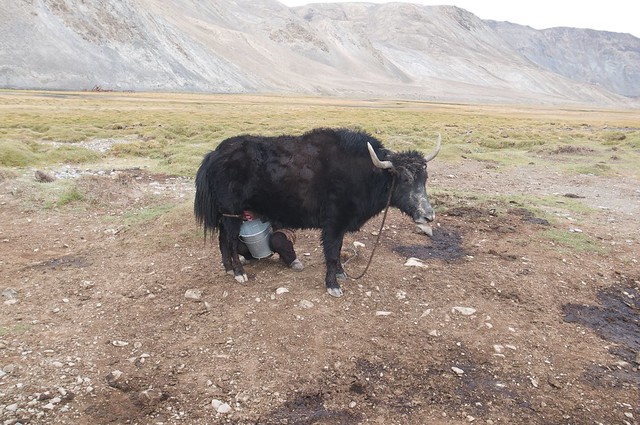
Our indomitable host wasn't into photos. She did like yaks though, and had ten. The calves are chained up by the yurt and the mothers spend the day grazing on the summer pasture, a boggy grass. In the evening the calves get a few minutes at the teat before they are booted out and she takes over. Yaks aren't the only thing she was miking: we paid $40 for B&B.
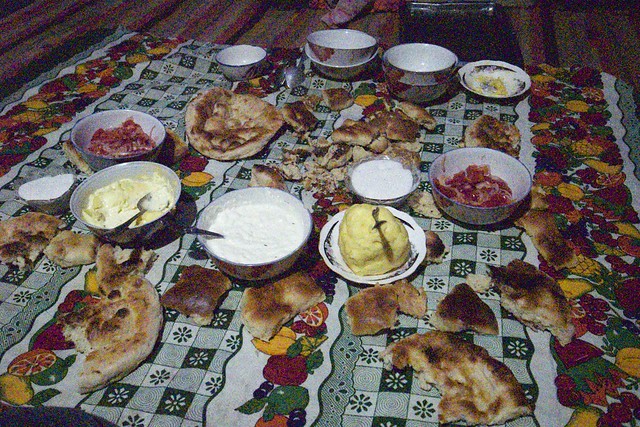
Dinner was white tea (yak milk tea with bread), yak cheese, yak yogurt, yak butter, and yak undefined.
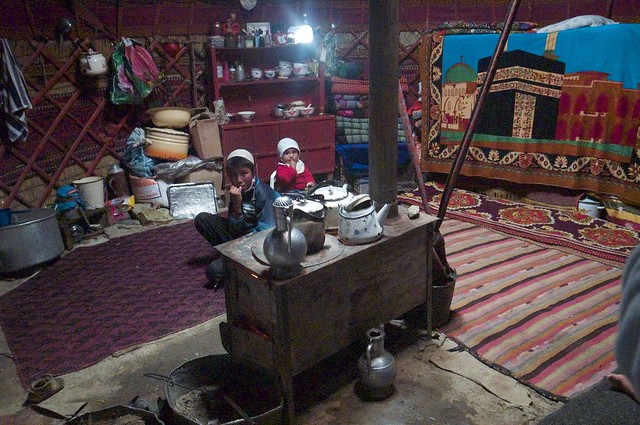
She had me sleep on the wall side; traditional I assumed. Turns out that's the mouse highway side. Mice have surprisingly cold paws - at first I thought it was raining on my hand. That's Meca on the tapestry. The stove is fueled with dry yak dung. After sundown, she powered up the laptop and stuck on some Krkgy soap operas for a while.
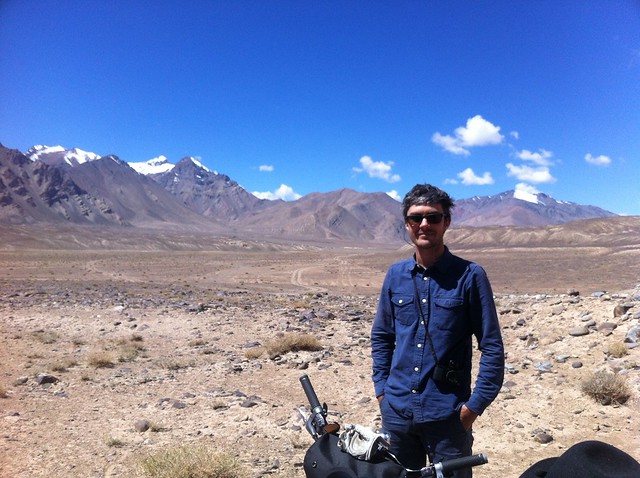
The next day was one stupidly beautiful view after another. That's me.
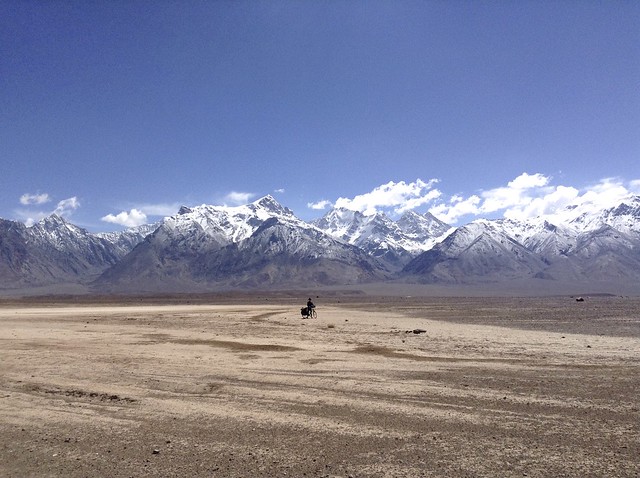
Cycling along a flat plain in the mountains is amazing. All views and no work.
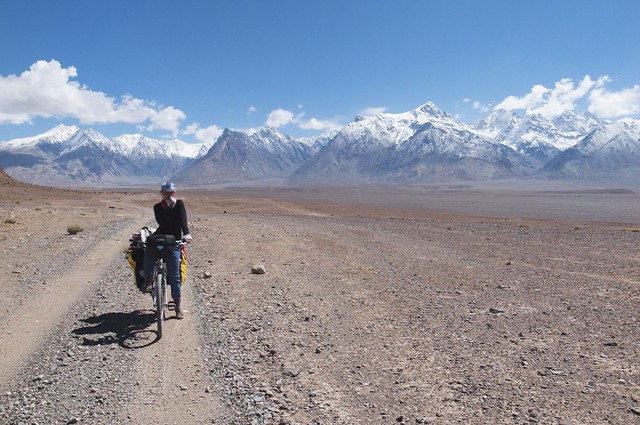
That's my traveling companion.
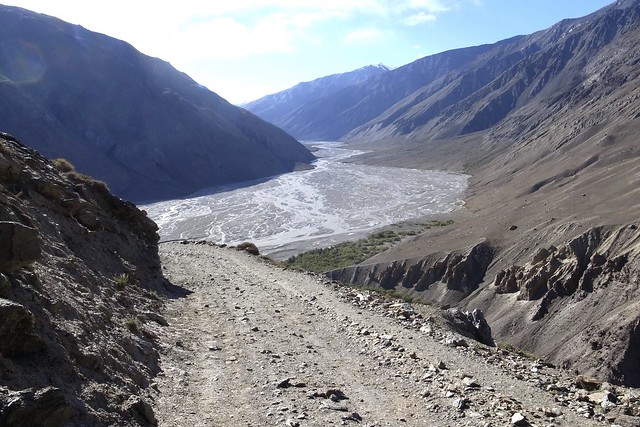
The road got pretty rough as we hit the river valley; tough with small tires and a heavy bag. After a day or two, everything hurt.
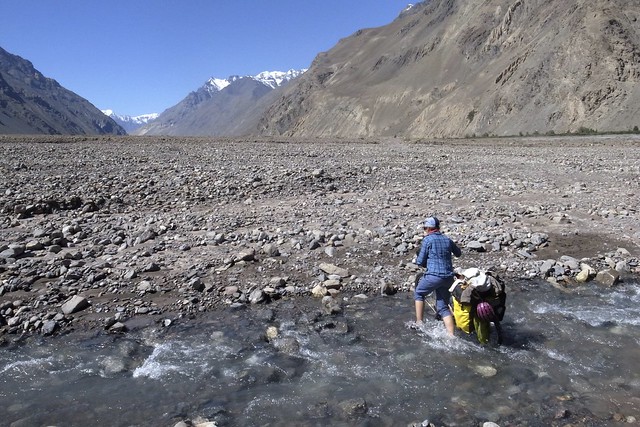
Landslides and river washed the path away in a few places. The water had just dribbled off a glacier and was -9 degrees.
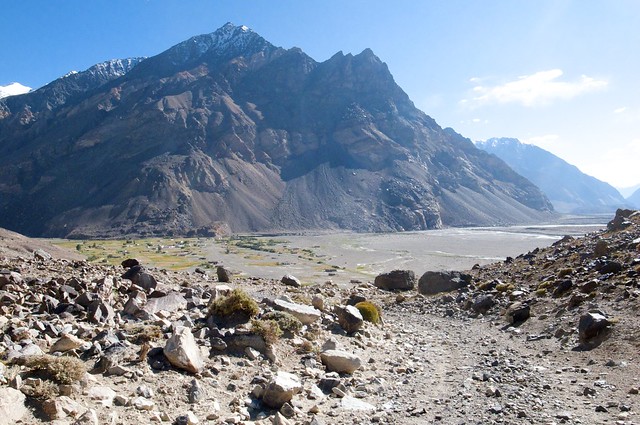
After a few days in hard, empty landscape, this village was a relief!
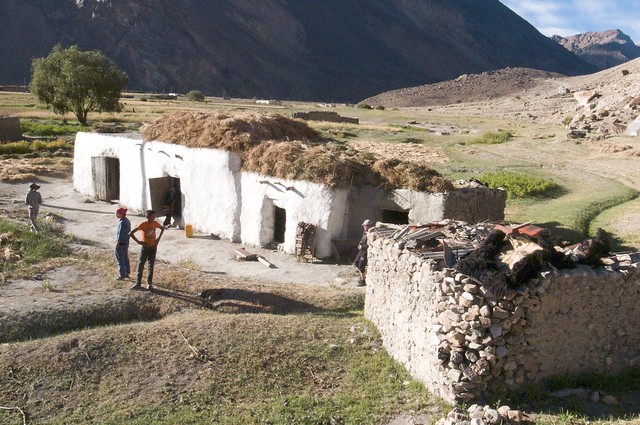
At this side of the valley, the people look less Asian and more Persian, have crops rather than life stock and are very into the Aga Kahn. Until 1991 these were Nationalised state farms, part of the USSR.
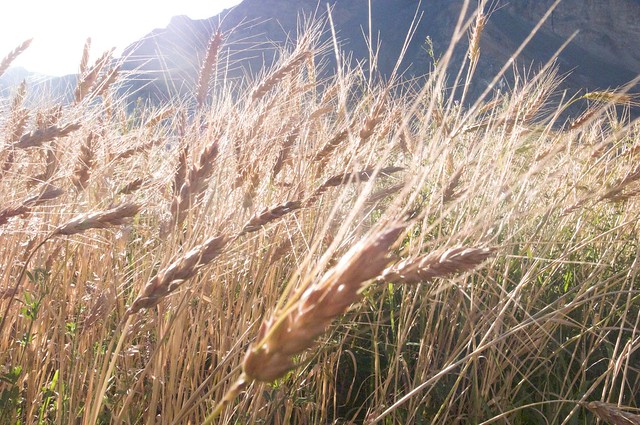
It was September and harvest time. Flocks of tiny birds were after the gain, so half the village spent the evening banging on sauce pans and firing stones to keep them away.
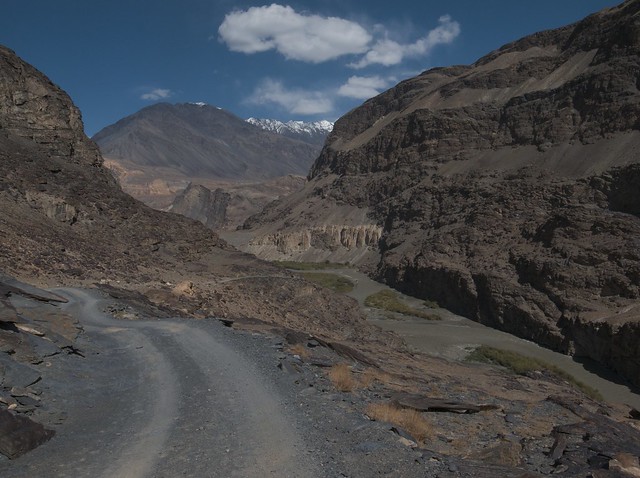
Between villages, relentless rock.
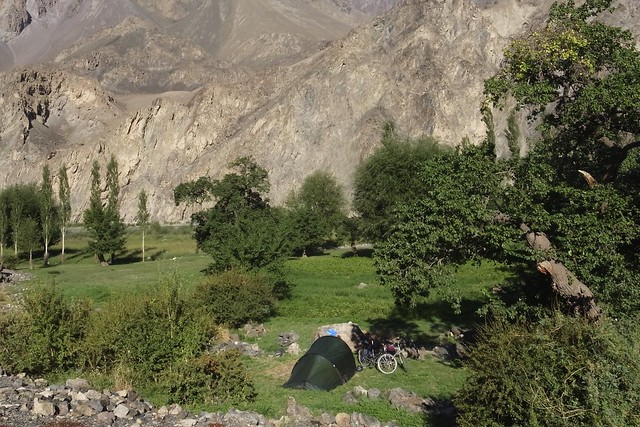
Camping in an orchard.
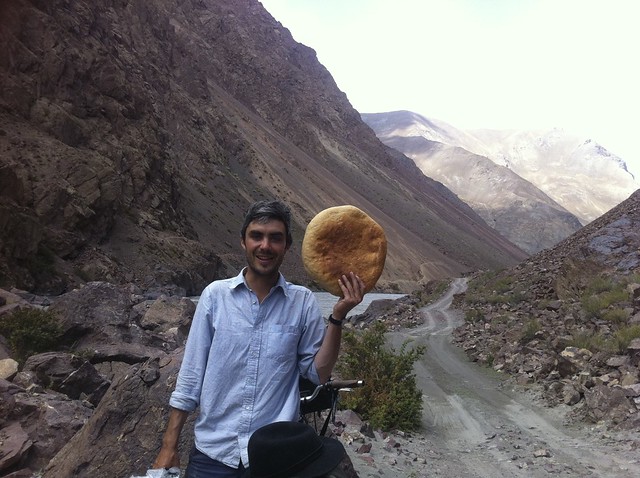
Non bread!
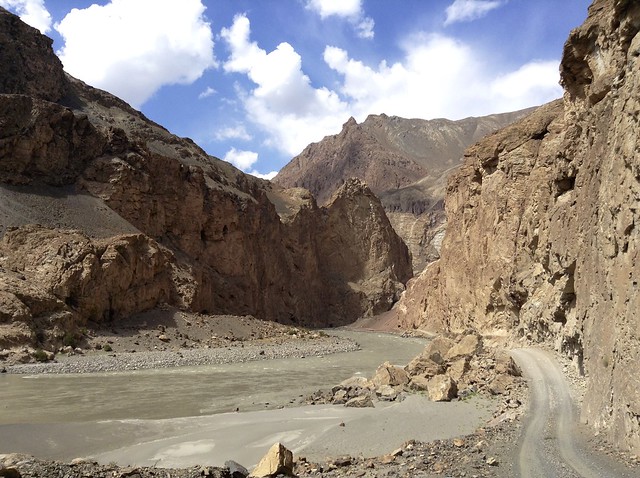
Every 20 km or so, there was a little green nugget of a village, but in between its just hard rock and a road that sweeps up and down the side of the valley. But for the swallows picking insects off the river, theres not much life.
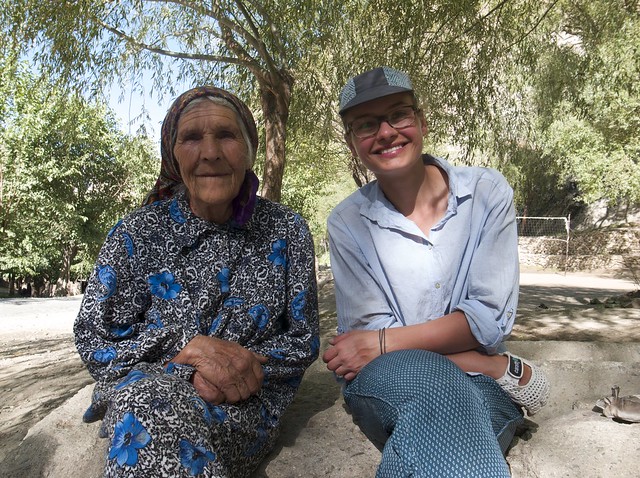
Hanging with the locals.
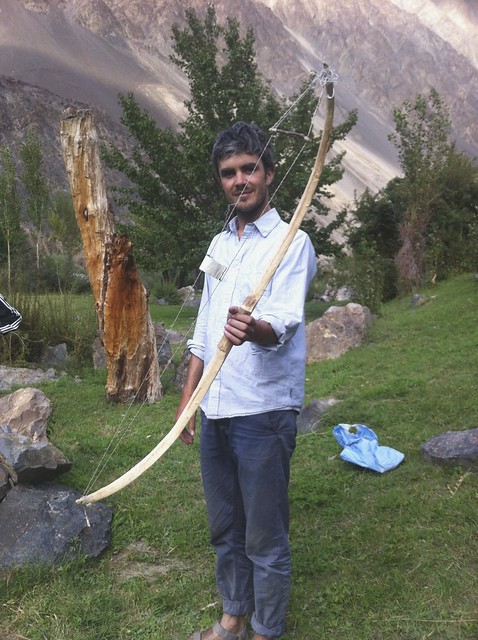
A bow, but for firing stones rather than arrows. Works a treat.
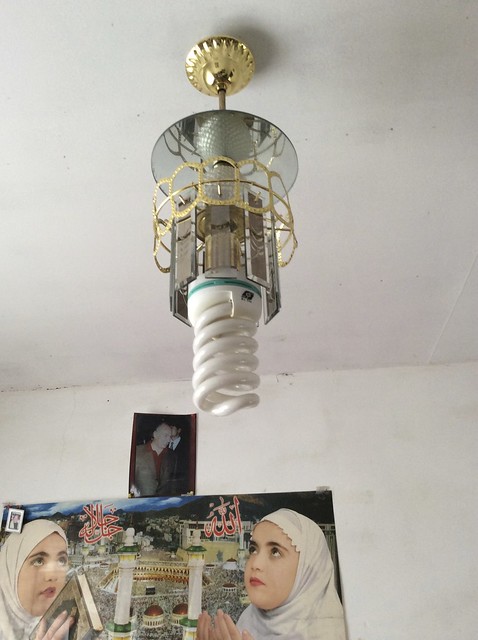
Any back to the main road, just on the Afghan border. Back to traffic, shops, civilisation, and glorious lampshades.
